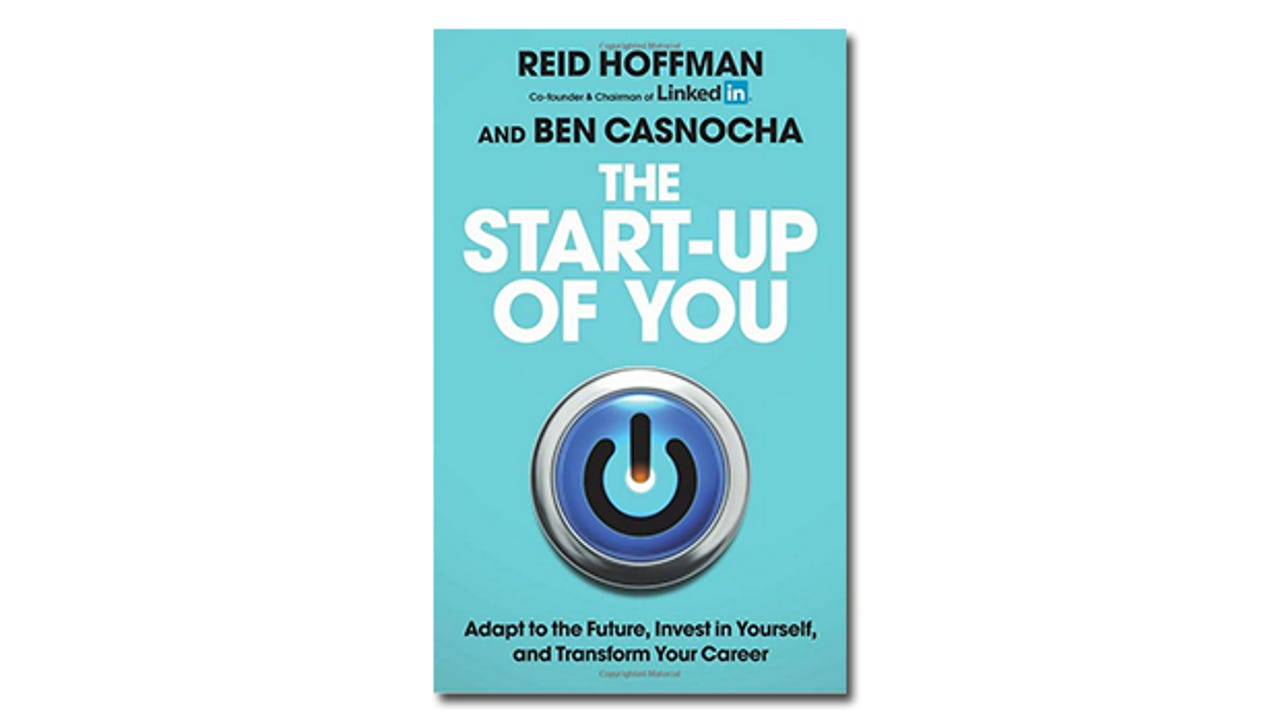Book review: The Start-Up of You

If you've been wondering exactly what LinkedIn is for, a book on applying entrepreneurship to your career co-written by its co-founder should be the ideal explanation. It is, but thankfully it's more than just an advert or tutorial for the service. Despite the somewhat limited viewpoint, The Start-Up of You is a useful guide to taking the principles behind founding startups and applying them to your career.
It's been a long time since you could expect to stay with one company for most of your working life. But getting a new job — especially after you've been laid off — is harder than ever, even though plenty of companies are complaining that they can't get skilled workers. It's not just about finding the companies that need your skills; you also need to look at whether your skills are going to remain relevant in the future. Hoffman's explanation of the impact of technology and globalisation on careers and on the type of jobs that are available is an excellent summary of the issues.
Technology automates well-paid jobs that used to require knowledge and skills that took time to acquire; it creates new jobs — but not until some time after it's made previous jobs obsolete, and those new jobs usually need higher-level skills. And the jobs new technology doesn't make obsolete, it makes available to people around the world who can compete with you at a lower price. The potted history of the US car industry that's used to show the dangers of not changing your mindset will resonate more with US readers, but it's a fascinating look at management culture in what started out as the manufacturing equivalent of Silicon Valley.

Hoffman argues fairly convincingly that you're dealing with the same problems faced by the founders of new companies — uncertainty, constant change, limited information, support and resources — so you should use the same strategies as successful startups. In particular, he suggests imitating Google by staying in permanent beta: acknowledge that you have bugs and that you need to adapt, evolve and improve. Couched in the terms of the technology industry, this sounds less like a cheesy motivational speaker than you might expect, although there is a certain amount of that.
Hoffman certainly knows startups; beyond LinkedIn, he's invested in Zynga, Digg, Kiva, Milk (recently sold to Google) and Facebook. Don't look for juicy gossip though. There's not quite enough inside information on startups to make this a riveting read, although it's fun to learn that Netflix started because Reed Hastings was embarrassed to tell his wife how much it cost him to take Apollo 13 back to the video rental shop several days late, that the inspiration behind Groupon was how frustrating it was to try to cancel a mobile phone contract and that Airbnb's founders raised money by selling politically-themed breakfast cereal.
Some of the examples Hoffman chooses may not feel relevant to everyone. Sheryl Sandberg's progression from the World Bank to management consulting at McKinsey to the White House to Google to Facebook is impressive, but few of us are going to have Eric Schmidt review our career plans. Of course Hoffman does aim to summarise the advice for you: take a job where there's fast growth, because that creates opportunities and you can ride the momentum.
And the practical details of how to act like a startup are useful: how to understand your assets and whatever competitive advantages you have, and particularly how to evaluate risk. Again this is peppered with technology comparisons — you don't get a lot of depth, but a brief explanation of the way the cofounder of Twitter values design and simplicity helps to set priorities for products, keep customer experience consistent and attract employees with similar values is probably more useful than a detailed case study and keeps the book a fast read. He doesn't duck the fact that most of what startups have to do is contradictory; plan and be flexible, be passionate, persistent and adapt to customer needs and feedback. The advice to have plans but be prepared to stray from them makes more sense when he explains how this applied to the various iterations of PayPal before it became successful, and to his own attempts to find the perfect job at Apple (and then joining PayPal himself).
And the practical details really are practical; there are tasks (to do in the next day, week and month, Hoffman suggests) that should help you apply the principles yourself. Some of those use LinkedIn, most use common sense, but having a structure is a good place to start. Some of the book is almost a plea to use LinkedIn better. It may not surprise you to learn that you get a better response from someone on a dating site if you show you've actually read their profile and thought about their interests; the same is true for talking to people professionally as well.
If you've read a lot of technology and business books, you'll recognise a lot of the ideas in The Start-Up of You. If you haven't, they're well summarised and the overview gives you a useful context for understanding the technology business as well as a possible way to approach your own career. This book isn't going to change your life, but it might give you some useful ideas.
And if you're still wondering what LinkedIn is for, it's for professional relationships — which don't have to be purely self-interested, need to be genuine and are most useful if they're slightly outside your usual circle because you already know about all the opportunities there. Much like this book, then.
The Start-Up of You: Adapt to the Future, Invest in Yourself, and Transform Your Career By Reid Hoffman, Ben Casnocha Random House Business Books ISBN: 978-1847940797 272 pages £12.99
Mary Branscombe